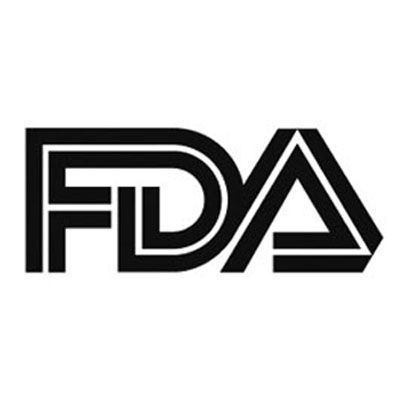FDA Postpones Approval Decision on Ublituximab/Umbralisib in CLL/SLL Pending ODAC Meeting
The FDA will now make a decision on the approval application for ublituximab/umbralisib in chronic lymphocytic leukemia and small lymphocytic lymphoma in June following an ODAC meeting.

The FDA has extended its review of the biologics license application (BLA)/new drug application for ublituximab (TG-1101) in combination with umbralisib (Ukoniq), or U2, which is a potential treatment option for patients with chronic lymphocytic leukemia (CLL) and small lymphocytic lymphoma (SLL), according to an announcement by TG Therapeutics, Inc.1
The new Prescription Drug User Fee Act (PDUFA) date for the BLA is June 25, 2022. To aid in the decision-making of whether U2 should be an FDA approved regimen for patients with CLL or SLL, a meeting of the FDA’s Oncologic Drug Advisory Committee (ODAC) is planned.
“…We believed an extension of the PDUFA date was a likely scenario especially given the proposed timing of the upcoming ODAC meeting. We hope this extension provides the time needed to give proper attention and review to the U2 BLA/sNDA,” Michael S. Weiss, chairman and chief executive officer of TG Therapeutics, stated in the press release. “We continue to believe in the potential of U2 to provide a meaningful treatment option to patients with CLL and SLL.”
The application for the U2 regimen to treat patients with CLL or SLL is supported with findings from the phase 3 UNITY-CLL clinical trial. The latest results from the study show that U2 significantly improved progression-free survival (PFS) compared with standard of care chemoimmunotherapy in patients with treatment-naïve, and relapsed/refractory CLL.1,2
UNITY-CLL is a randomized, controlled study comparing U2 versus obinutuzumab (Gazyva) plus chlorambucil to treat patients with either treatment-naïve or relapsed/refractory CLL. The study investigated the primary end point of PFS and the secondary end point was objective response rate (ORR).2
Patients were randomized to 1 of 4 treatment arms, which include ublituximab alone, umbralisib alone, U2, or the anti-CD220 monoclonal antibody obinutuzumab plus chlorambucil chemotherapy as the control arm. Treatment in the U2 arm consisted of umbralisib given orally once daily at 800 mg in combination with ublituximab given intravenously (IV) at 900 mg on days 1/2 [split 150 mg/750 mg], 8, and 15 of cycle 1, day 1 of cycles 2 through 6, and on day 1 every 3 cycles after cycle 6. In the comparator arm, patients received IV obinutuzumab at 1000 mg on days 1/2 [split 100 mg/900 mg], 8, and 15 of cycle 1, and day 1 of cycles 2 through 6. Chlorambucil was given orally at 0.5 mg/kg on day 1 and 15 of cycles 1 through 6. Each cycle was 28 days.
At a median follow-up of 36.2 months, the median PFS was 31.9 months with U2 compared with 17.9 months in the control arm (HR, 0.546; 95% CI, 0.413-0.720; P <.0001). The estimated 24-month PFS was 60.8% in the U2 arm compared with 40.4% in the control arm. The PFS benefit appeared to be consistent across all subgroups evaluated.
In terms of the secondary end point, the U2 regimen achieved a higher ORR of 83.3% (95% CI, 78.1%-88.6%) versus 68.7% (95% CI, 62.2%-75.2%) in the control arm (P <.001).
Comparing the safety/tolerability of U2 to obinutuzumab and chlorambucil, the grade 3/4 adverse events (AEs) of interest included neutropenia (30.6% vs 34.7%, respectively), thrombocytopenia (3.4% vs 13.1%), diarrhea (12.1% vs 2.5%), infused related reaction (1.9% vs 3.5%), elevated aspartate and alanine aminiotranferse (8.3% vs 2.0%), colitis (3.4% vs 0%), and pneumonitis (2.9% vs 0%).
Only 7.6% of patients in the U2 arm discontinued treatment compared with 16.5% of the control arm.
Regarding the approval application, the FDA notified TG Therapeutics that they plan to ask the ODAC about the benefit-risk profile of U2 in CLL/SLL, marginal zone lymphoma, and follicular lymphoma. Further, they will be asked to take a look at the AE profile of the combination as shown in UNITY-CLL.1
References:
1. TG Therapeutics announces extension of U.S. FDA BLA/sNDA PDUFA Date for ublituximab plus UKONIQ® (U2) to treat patients with CLL and SLL. News release. March 3, 2022. Accessed March 3, 2022. https://bit.ly/34e6JSc
2. Gribbem JG, Jurczak W, Jacobs R, et al. Umbralisib plus ublituximab (U2) is superior to obinutuzumab plus chlorambucil (O+Chl) in patients with treatment Naïve (TN) and relapsed/refractory (r/r) chronic lymphocytic leukemia (CLL): Results from the phase 3 Unity-CLL study. resented at: 63rd Annual American Society of Hematology Annual Meeting and Exposition; December 5-8, 2020. Abstract 543.
Selection of Next-Gen BTK in CLL Limited By Lack of Direct Comparison
February 4th 2025During a Case-Based Roundtable® event, Nakhle Saba, MD, and participants discussed the data supporting the 2 newer BTK inhibitor therapies acalabrutinib and zanubrutinib in patients with chronic lymphocytic leukemia who received 1 prior line of therapy in the second article of a 2-part series.
Read More